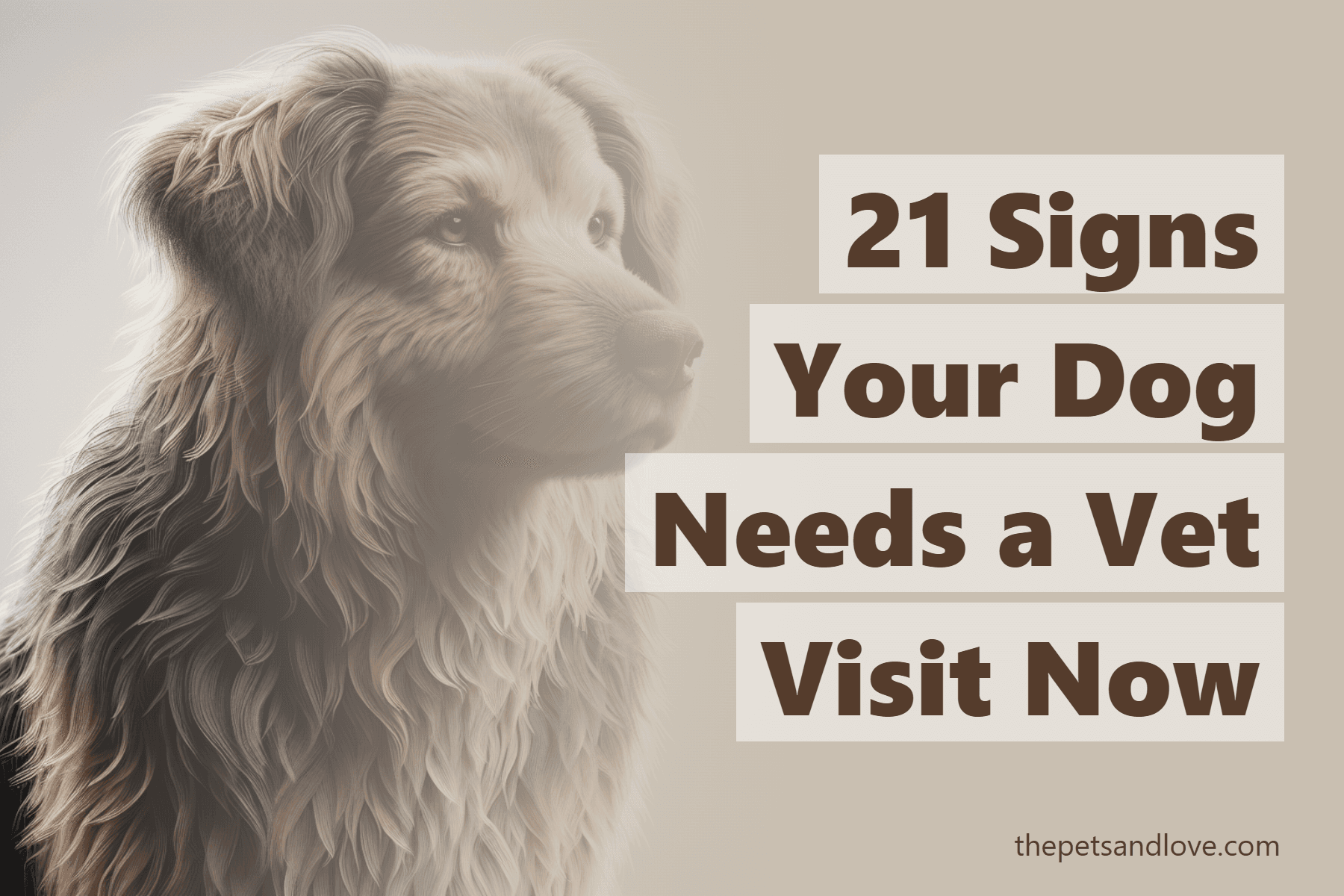21 Signs Your Dog Needs a Vet Visit Now

When your dog isn’t acting like themselves, it’s easy to brush it off as a “weird day.” But in our experience, those little changes can be your first clue that something’s off — and catching it early can make a big difference.
Here’s a bite-sized list of red flags we’ve learned to watch for over the years. If you notice any of these — especially more than one at a time — it’s time to call your vet.
1. Eating or Drinking Less (or Way More)
If your pup suddenly loses interest in food or starts drinking like a camel, don’t ignore it. Dental pain, digestive troubles, infections, diabetes, and even stress can mess with their appetite or thirst. One of my Ridgebacks once stopped eating for a day — turned out to be a tooth abscess.
2. Low Energy or Hiding
Lethargy is often one of the first signs something’s wrong. This could point to infections, anemia, pain, or bigger issues like thyroid problems or cancer. If your normally zoomie-loving dog is curled up and avoids playtime, it’s worth checking out.
3. Bathroom Habit Changes
Frequent peeing, straining, accidents in the house, or loose stools can all signal things like UTIs, bladder stones, or digestive issues. And if there’s blood? Don’t wait — get to the vet.
4. Vomiting or Diarrhea That Lingers
A one-off might be no big deal, but if your dog’s vomiting or has diarrhea for more than a day or two — or seems otherwise unwell — it could be something deeper like poisoning, infection, or food intolerance.
5. Coughing, Sneezing, or Trouble Breathing
A little sneeze here and there? Probably allergies or dust. But persistent coughing or any difficulty breathing could mean kennel cough, heart disease, or worse. Don’t risk it — breathing issues can escalate fast.
6. Weird Lumps or Swelling
Not all lumps are cancer, but any new growth or swelling should be checked. Some are just cysts or reactions to bug bites; others need treatment ASAP.
7. Changes in Skin, Coat, or Itching
If your dog’s coat suddenly looks dull, their skin is flaky or red, or they’re constantly scratching or licking, think allergies, parasites, or even hormonal imbalances. Judith once fostered a dog who wouldn’t stop licking his paws — turned out to be a food allergy.
8. Bad Breath or Drooling
Dogs don’t have minty-fresh breath, sure — but foul odor, drooling, or swollen gums often mean dental issues or even underlying illness like kidney disease or diabetes.
9. Limping or Stiffness
Joint pain isn’t just for seniors. Arthritis, injuries, hip dysplasia, or even neurological issues can show up as stiffness or reluctance to move. If your pup’s gait changes, don’t wait it out.
10. Shifts in Personality or Behavior
If your friendly pup becomes withdrawn, aggressive, or anxious, something could be brewing — pain, illness, even cognitive decline. Sudden behavior changes are worth investigating.
11. Strange Discharge or Eye/Ear Changes
Runny eyes, goopy noses, head shaking, or ear scratching? Think infections, allergies, or irritants. These can get worse fast if left untreated.
12. Panting, Trembling, or Restlessness
Dogs pant to cool down, but heavy panting at rest, especially with pacing or shaking, can signal pain, overheating, anxiety, or something more serious like heart trouble.
13. Seizures or Collapse
Seizures, tremors, or sudden fainting are always a vet emergency. Causes can range from poisoning to epilepsy to heart issues — and you’ll need a vet’s help to figure it out.
14. Heatstroke Signs
Especially in hot weather or with flat-faced or large-breed dogs, excessive panting, drooling, vomiting, or collapse can mean heatstroke — which can be deadly if not treated fast.
Bottom Line:
You know your dog best. If something feels off — whether it’s a skipped meal, a new limp, or just that gut feeling that something’s wrong — don’t wait. A quick vet check can save your dog a lot of suffering (and may save their life). Preventive care and early treatment go a long way.
We’ve been through those scary “Is this serious?” moments, and we’ve learned to trust our instincts. You should too.
